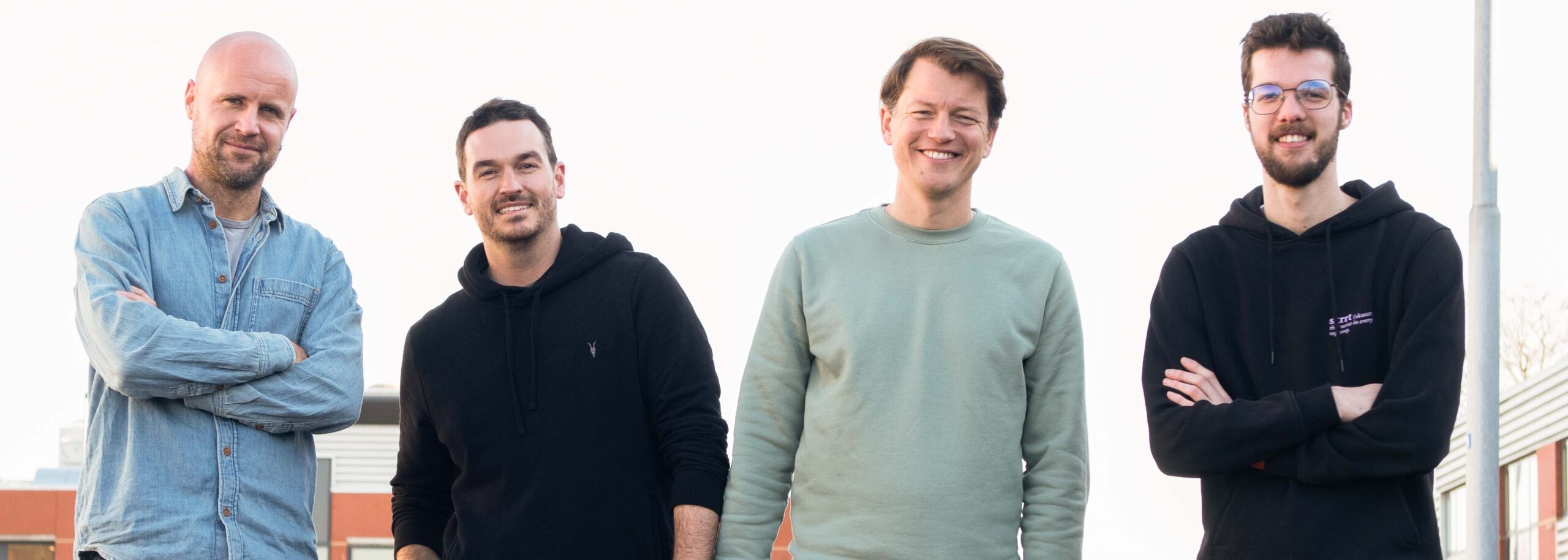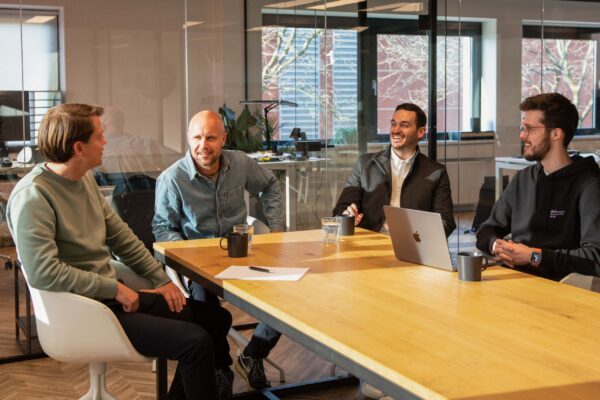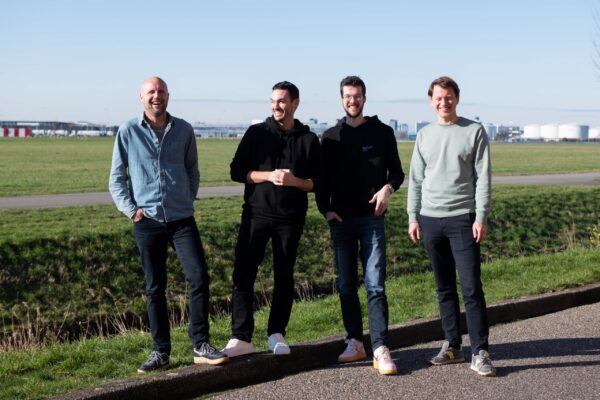What is Nivoda
Q: Could you give an introduction to yourself and explain what your startup does?
A: We’re a B2B marketplace for the diamond and jewelry industry, connecting suppliers and buyers worldwide. But we don’t stop at discoverability; we also facilitate the delivery and payment processes to ensure transactions are seamless.
The idea for Nivoda was born out of a day when our diamond buyer was out, and I had to step in. Using Rapnet, a current marketplace, I found that buying diamonds from multiple suppliers was a complicated, time-consuming process filled with red tape and high fees. I faced endless KYC checks, price negotiations, payment transfers, and shipping logistics, all amounting to about 10% of the transaction cost.
This inefficiency led me to think, “Why can’t this be as simple as an online checkout?” And that was the catalyst for Nivoda—to make the buying process easier and more cost-effective for everyone in the industry.
Motivation Behind Joining Entrepreneurs First
Q: What drove your decision to participate in Entrepreneurs First?
A: My time at Techstars was transformative for my business, but I was missing a key piece—a co-founder. Enter Entrepreneurs First, a program that pairs aspiring entrepreneurs based on complementary skills and industry know-how, before founders even have a company.
The program uniquely searches for individuals with one of three skill sets: technical expertise, product prowess, or deep industry knowledge. I fit the last category, which made the program’s pairing approach so appealing.
The real game-changer was meeting Andre through their vetting process. He wasn’t just technically skilled; he was also committed to building a global, scalable business, right then. Entrepreneurs First didn’t just give me resources; it matched me with a co-founder who shared my goals and perfectly balanced my skills.
Navigating the Entrepreneurs First Application Process
Q: What was the application process for the accelerator?
A: The application process was quite rigorous, considering they had about 1,700 applicants at the time. It began with a form, the details of which are a bit fuzzy to me now, but it essentially required you to articulate who you are and what you aim to accomplish. This step led to an in-person meeting, where the explanation became more detailed.
If you were a domain expert, like myself, you needed to delve into your background, your experience, and the specific problem within your domain you were poised to solve, almost presenting a business case. For those from a technical background, the discussion was more about their experience in technology development, allowing more flexibility regarding the idea.
These distinct tracks underscored the accelerator’s approach: pairing deep domain knowledge with technical prowess. In my case, it was about expressing my interest and vision for what I wanted to build.
Q: What do you think made you stand out among the other applicants?
A: Clarity and conviction were my greatest allies. I presented a well-formed vision, not just a vague idea, about what I intended to execute. I was certain it was something necessary, and this confidence in both the vision and my ability to bring it to fruition, I believe, was what resonated with the selectors. It wasn’t just about having an idea but being profoundly clear about its implications and being the right person to execute it. That clarity of purpose and confidence in execution were decisive factors in my acceptance into the program.
Embarking on the Accelerator Journey
Q: What was a typical day like in the accelerator, and how did you meet your co-founder?
A: The process kicked off with a speed-dating-like atmosphere, where everyone engaged in quick, exploratory conversations, each looking for the perfect co-founder. Before diving into this, Andre and I had already crossed paths through a preliminary step in the program. We were all asked to upload introduction videos, highlighting what drove us. I had a crystal-clear message in mine: I was set to enable the diamond and jewelry industry and needed a tech-savvy co-founder with team management experience.
After stumbling upon my video, Andre felt a strong resonance with my vision. We connected over Skype—yes, this was during the Skype era—and started our conversations well before the program officially started. Although we interacted with others during the first days of the accelerator, we had already made a mutual decision to collaborate. I remember a pivotal moment at a local pub, where I looked Andre in the eyes and stressed that this wasn’t just a startup venture for me; it was going to be my life’s mission. I needed to know he was fully committed, come what may.
That heartfelt conversation at the pub marked a turning point. We made a pact to see our journey through, regardless of the outcome. Fueled by a shared vision and unyielding commitment, we plunged headfirst into our collaborative endeavor.
Q: Did you have access to mentors during the program?
A: Without a doubt, mentors played a pivotal role in our program experience. Michael, our designated mentor, offered deep insights into the program’s inner workings and the shifting dynamics we could expect. He also provided invaluable guidance on quickly reaching our initial goals. At this early stage, every startup is laser-focused on achieving product-market fit, racing toward that elusive first million in revenue while maintaining stellar customer service.
Mentors like Michael became particularly crucial after our demo day presentation. That’s when we had the chance to connect with an array of potential investors, including Charles. He not only chose to invest in our startup but also evolved into a steadfast pillar of support and eventually, my personal coach. Our engagement didn’t stop at weekly sessions. Charles extended his expertise to others in our leadership team and orchestrated off-site and further development activities.
The transformative power of mentorship can’t be overstated. As one progresses in their entrepreneurial journey, transitioning from a mentor to a full-time coach can be a game-changer.
Q: What financial support did the program provide to kickstart your operations?
A: The financial setup of the program was a lifeline in our early days. A £2,000 monthly stipend per founder for the first three months let us focus solely on the business. Then, an £80,000 investment post-Investment Committee clearance propelled us toward demo day. In return, the accelerator took an 8% equity stake—a trade-off we considered fair given the benefits.
But the financial support didn’t end there. The accelerator participated in later funding rounds, including an additional £150,000 investment. This wasn’t just capital; it was a strong endorsement of our vision, attracting more investors and fueling our ongoing growth.
Achieving Milestones and Facing Challenges
Q: What was a major milestone you accomplished during the accelerator program?
A: One of the most pivotal achievements for us was securing our first paying customer and executing successful deliveries. By the time we presented on demo day, we were facilitating the delivery of diamonds valued at about $50,000 per month. This was a crucial validation of our business model, proving that we could indeed save our customers both time and money.
Interestingly, at that stage, everything was manual; there was no real automation. Essentially, our client had employed Andre and me full-time to handle these intricate processes. Although it was labor-intensive, this hands-on approach provided us with invaluable insights and the impetus to expand our customer base. It was a solid stepping stone, instilling the confidence we needed to pursue further growth.
Q: Throughout your journey, particularly in the early stages, did you encounter any significant challenges?
A: Interestingly, our response to challenges has shaped the very core of our company values. Our paramount principle is to “start with the customer.” This approach isn’t just about addressing issues as they arise; it’s about establishing a foundational strategy that guides every decision we make.
We continually prompt team members to reflect on whether their initiatives originate from a genuine customer need or if they’re based on assumptions about what the customer may want. This emphasis helps ensure that we’re consistently aligned with our customer’s needs and not just operating on auto-pilot based on preconceived notions. It’s about grounding our operations and innovations in real-world requirements, which has become a guiding light in our journey.
Q: Within the accelerator program, were there any particular challenges or hurdles that you had to confront?
A: The program was a high-stakes, high-stress environment, testing us at every turn—from IC evaluations to demo day to raising seed funding. But we leaned into the pressure and emerged stronger, gaining not just funding but also invaluable confidence.
For me, the crucible moment was public speaking. I’d always avoided it, but the program gave me no choice: I had to address an audience of 500 in-person and 1,500 online. With support from the EF team and intensive preparation, I faced my fears and delivered.
This breakthrough carried over into my leadership role, where I now comfortably address a 270-person team. The takeaway? Facing your fears head-on fosters personal growth and strengthens your leadership game.
Current Achievements and Future Goals
Q: Where does your company stand today in terms of growth, performance, and any recent milestones?
A: From the accelerator’s kickoff to where we stand today, our trajectory has been strong and consistent. Monthly sales are at $17.5 million, we are a 270-person team, and growing revenue at 160% YoY.
Last week’s Series B closure was a great milestone, with our total investment now being $46 million. It’s been great to see the interest from many VCs in what we have built over the past 6 years. This capital is a springboard, enabling us to double down on tech, scale our reach, and up our customer experience game. The real MVPs are the people who make up our team. Their grit and ingenuity are the real drivers behind the metrics.
So, our story isn’t just about business milestones; it’s a tribute to the people making it happen. We’re not just building a successful company; we’re building a platform where committed innovators can turn their very best ideas into reality.
Q: What are your upcoming milestones and how your experiences with the accelerator program have equipped you for these?
A: If you’re eyeing immediate wins, you’re missing the bigger picture. Our aim? To be the enablers of the jewelry industry in the long run.
The funding from EF was helpful, but I’d say what truly supercharged our trajectory was the total package—insight, connections, and mentorship. These resources shifted us from zero to a hundred real quick, opening doors to investors faster than we could’ve on our own.
We have built a great group of mentors, investors, and our team. EF definitely helped us kick that off the right way from day 1.
Q: Do you still keep in touch with the Entrepreneurs First community?
A: The relationship with the accelerator didn’t end post-program; it evolved into a lasting partnership based on mutual support. I remain active in the community, now wearing dual hats as an alumnus and an angel investor. When current participants seek advice or connections, I’m there to help.
As an angel investor, I engage with new cohorts to understand their visions and share my own experiences. This role is not just rewarding but a responsibility, allowing me to contribute back to the ecosystem that nurtured my own startup. It’s more than financial backing; it’s about becoming a part of someone else’s entrepreneurial journey, sharing learnings, and doing what I can to help, in the same way Charles was there for me.
The accelerator’s value lies in its ability to create a network of innovators, advisors, and investors. It goes beyond launching businesses to fostering a community built on real-world education, support, and a pay-it-forward mentality.
Final Advice
Q: What would you advise founders thinking of applying to Entrepreneurs First?
A: “Think Big” isn’t just a catchy phrase; it’s an essential mindset in the startup and VC world. Founders need to aim for more than just solving a problem; they should aim to change entire industries. It’s not about being a hundred-million-dollar company but envisioning a venture scaling to billions.
Venture capitalists seek businesses with this level of ambition—those that aim to do more than enter a market but to transform it. It’s about the scale and scope of your solution, how many lives it will touch, and how much better it is than what already exists.
So, don’t limit your goals based on current circumstances. Aim for transformative, global impact. It’s this scale of vision that venture capital nurtures, especially in accelerator settings. Extraordinary founders don’t just aim for success; they strive for lasting change.



